Greek semolina halva (or halvah) is a traditional dessert which is very popular during Lenten period. If you are looking for a delicious no-dairy, no-butter and egg-free recipe, that’s the one! Personally I enjoy halva all year round, as it is dead simple to make and with ingredients I already have in my kitchen.
In this recipe I will take you thorough all my secrets to making it to perfection and of course you’ll find the recipe at the end of the post!
Traditional Greek Halva recipe – “1:2:3:4” Ready!
The traditional semolina Greek Halva recipe is often referred as “1:2:3:4”, as it calls for one unit oil, two semolina, three sugar and four water. So simple!
If you haven’t tried semolina Greek halva before, you will be surprised by the delicious taste of those 4 humble ingredients, when combined.
When preparing a Greek halva recipe, the semolina is firstly toasted in oil, bringing out an irresistible smell. Then the mixture is cooked in hot syrup, with the aromas and blends of cinnamon, clove and lemon. Simply delicious!
Traditional Greek Halva recipe – Tips
- Toast the semolina in the oil until it becomes golden brown.
- Allow the semolina to darken and get fragrant, but be careful not to over toast it or else it will burn and the halva will become bitter.
- Once you toast the semolina, remove the pot from the stove and add slowly and carefully your hot syrup. Be really careful, as the halva mixture is very hot!
- Then you should cook the halva until it thickens and becomes like a very thick paste. You need to cook the halva, until almost solid, as it won’t solidify much more after cooling.
- Don’t forget to stir the mixture during the whole process.
- Allow the halva to cool for about 1 1/2 hour before serving for it to become easily sliceable.
- When preparing the syrup for this halva recipe, you shouldn’t blend or stir the syrup. This will prevent it from getting grainy. Just bring to the boil, let the sugar dissolve in the hot water and boil for a few minutes until it slightly thickens.
Ingredients for Greek semolina halva
As mentioned before, the main ingredients for a traditional Greek halva are semolina, sugar, oil and water.
You could be absolutely happy with these, but if you want to add a bit more flavour and texture to your halva then some nuts are an excellent addition! Toasted almond silvers are my personal favourite. Some blonde or black raisins also add a nice sweet bite to it!
For the semolina I use a mixture of coarse and thin semolina. As I like a more grainy texture, I use a little bit more coarse semolina. But if you prefer a thinner texture you could substitute with half and half thin and coarse semolina.
Semolina is toasted in oil. Using vegetable oil only is ok, but adding some olive oil lifts the flavour! I wouldn’t recommend to use only olive oil because the halva will become a bit too heavy taste wise.
For the syrup try substituting some sugar with good quality honey. Doing so gives the syrup that little extra flavour and delicious stickiness! Plus honey helps syrup not to crystallise.
Tip: For that little bit of freshness use some lemon or orange peel in the syrup.
Spices play also a very important role in bringing out the aromas of a traditional Greek halva. Cinnamon and clove are most commonly used but could also add a pinch of nutmeg too.
How to serve Greek halva
Allow the halva to cool for about 1 1/2 hour before serving. Remove the halva from the tin by turning upside down on a platter just like a cake. Garnish with some cinnamon powder and sprinkle with the almond slivers.
If you simply can’t wait to eat it spoon the mixture into individual bowls and serve warm with a full-spoon of vanilla ice cream!
Other delicious Lenten recipes
If you are looking for other delicious recipes to make during lenten season , here is a list of my favourite lenten desserts that I’m sure you will love.
- Greek honey sesame bars (pasteli)
- Moustokouloura (Grape must cookies)
- Lenten Loukoumades
- Amazing Lenten chocolate sponge cake
- Walnut filled crescent shaped pastries (Skaltsounia)
- Olive Oil cookies (koulourakia ladiou)
Semolina dessert recipes
Halva is so versatile as a dessert ingredient! Why not take a look at some more of my semolina based desserts that I’m sure you’ll love!
- Galaktoboureko (Greek custart pie with phyllo)
- Samali (semolina cake with syrup)
- Melomakarona (Greek Christmas honey cookies)
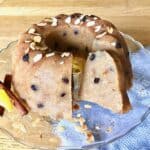
Greek Halva recipe (Semolina Pudding with Raisins)
- Prep Time: 10 min
- Cook Time: 30 min
- Total Time: 40 minutes
- Yield: 10 portions 1x
- Category: Dessert
- Method: Boiled
- Cuisine: Greek
Description
The traditional Greek Halva recipe is often referred as “1:2:3:4”, as it calls for one unit oil, two semolina, three sugar and four water. So simple!
Ingredients
For the semolina Halva
- 1/2 cup olive oil
- 1/2 cup corn oil
- 2 cups semolina (1 1/2 cup coarse and 1/2 cup thin)
- 1/2 tsp clove (powder)
- 1 tsp cinnamon (powder)
- 1/4 of a cup blond raisins (optional)
- 1/2 cup almond slivers (optional)
For the syrup
- 3 cups of sugar (or 2 cups sugar and 1 cup honey)
- 4 cups of water
- 1 cinnamon stick
- 1 whole clove (optional)
- zest of 1 lemon
Instructions
- To prepare this delicious Greek halva recipe, start by preparing the syrup. Add all the ingredients into a pan over high heat and bring to the boil. Boil until the sugar has dissolved and the syrup slightly thickens. Set aside, but keep warm.
- In the meantime, roast the almond silvers into the oven at 180C. Although the traditional Greek halva recipe doesn’t include almonds, it’s always a nice addition, which gives extra flavour and crunchiness.
- Heat the oil in a large pot and add gradually the semolina. Stir constantly with a wooden spoon to allow the semolina to absorb the oil. When the semolina starts to bubble, turn the heat down and allow to toast until golden (whilst constantly stirring). The more you toast the mixture, the darker it will become. Just be careful not to over toast it, as the semolina will burn and the halva will become bitter.
- Remove the pot from the stove and pour in, slowly, the warm syrup. Don’t forget to remove the lemon peel, cinnamon and clove!
- Stir with a wooden spoon and return the pot on the stove. Add the halva spices.
- Cook the halva (whilst stirring) until the mixture thickens and pulls away easily from the sides of the pan.
- Remove the pot from the stove, add the raisins and half of the roasted almond slivers and blend. Cover the halva with a towel and let it rest for 10 minutes. Pour the mixture into a pudding mold or into individual bowls.
- Allow the halva to cool for about 1 1/2 hour before serving. Garnish with some cinnamon powder and sprinkle with the rest almond slivers.
Nutrition
- Serving Size: 1 piece
- Calories: 592kcal
- Sugar: 62.6g
- Sodium: 1.5mg
- Fat: 25.5g
- Saturated Fat: 3.5g
- Unsaturated Fat: 20.8g
- Trans Fat: 0g
- Carbohydrates: 89g
- Fiber: 2.3g
- Protein: 5.5g
- Cholesterol: 0mg

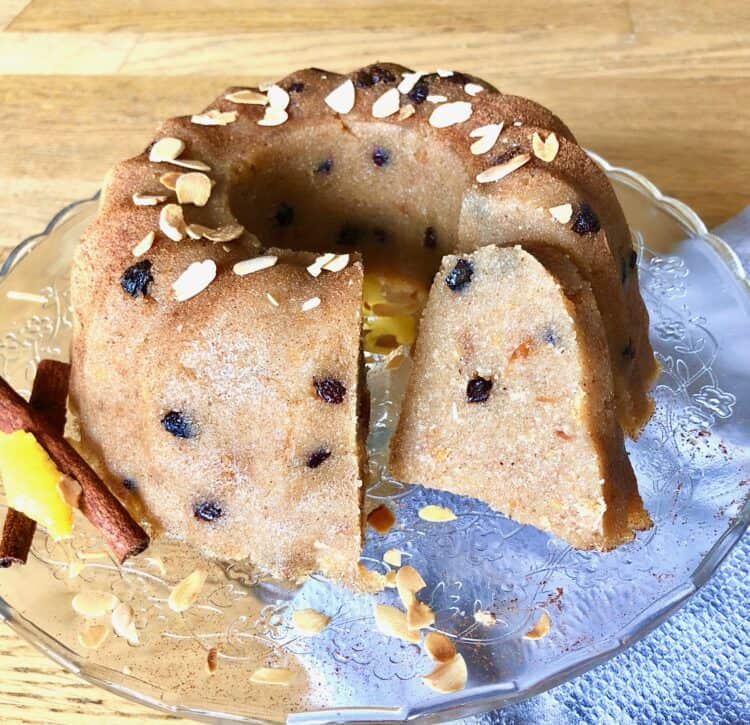
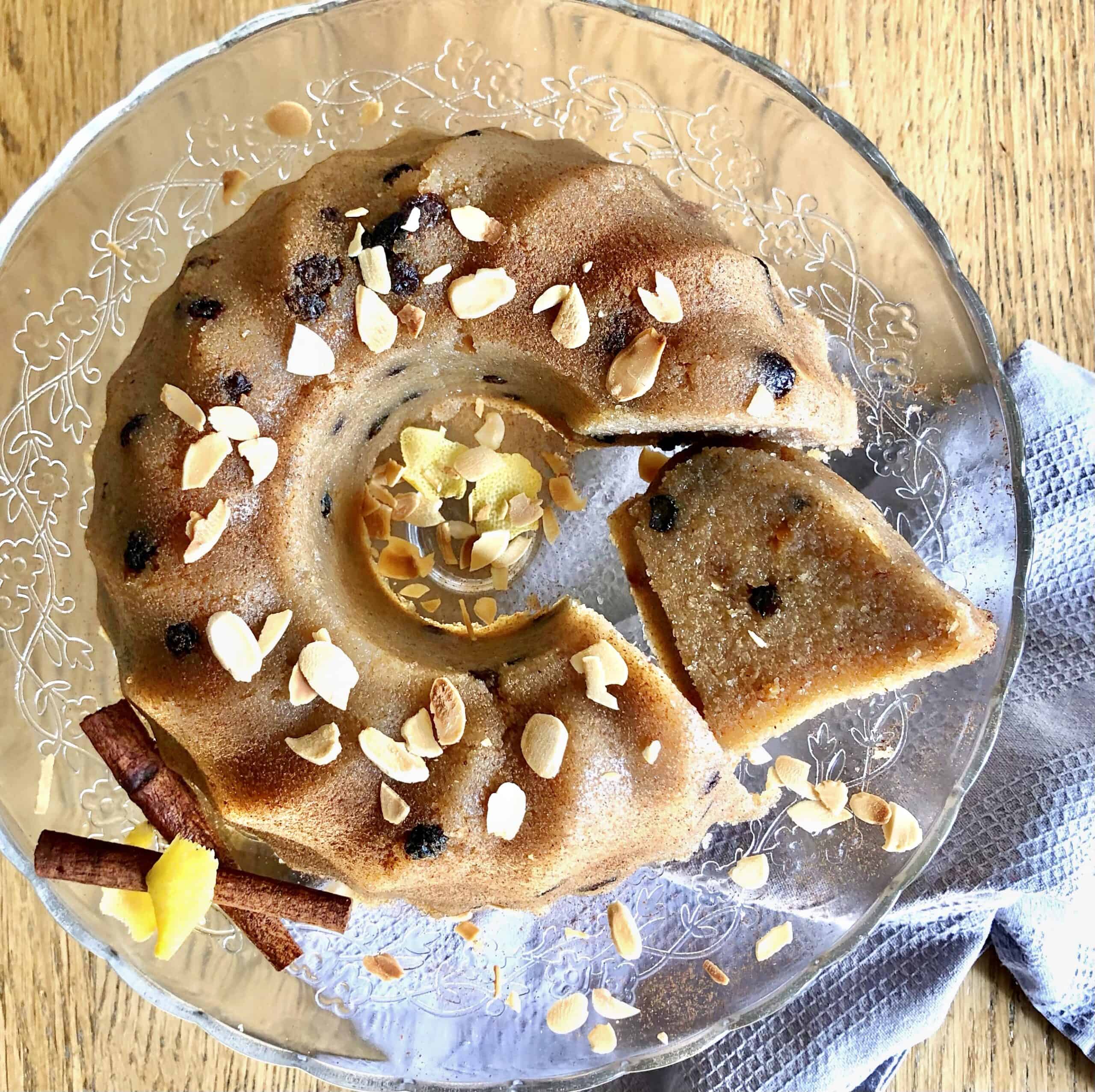
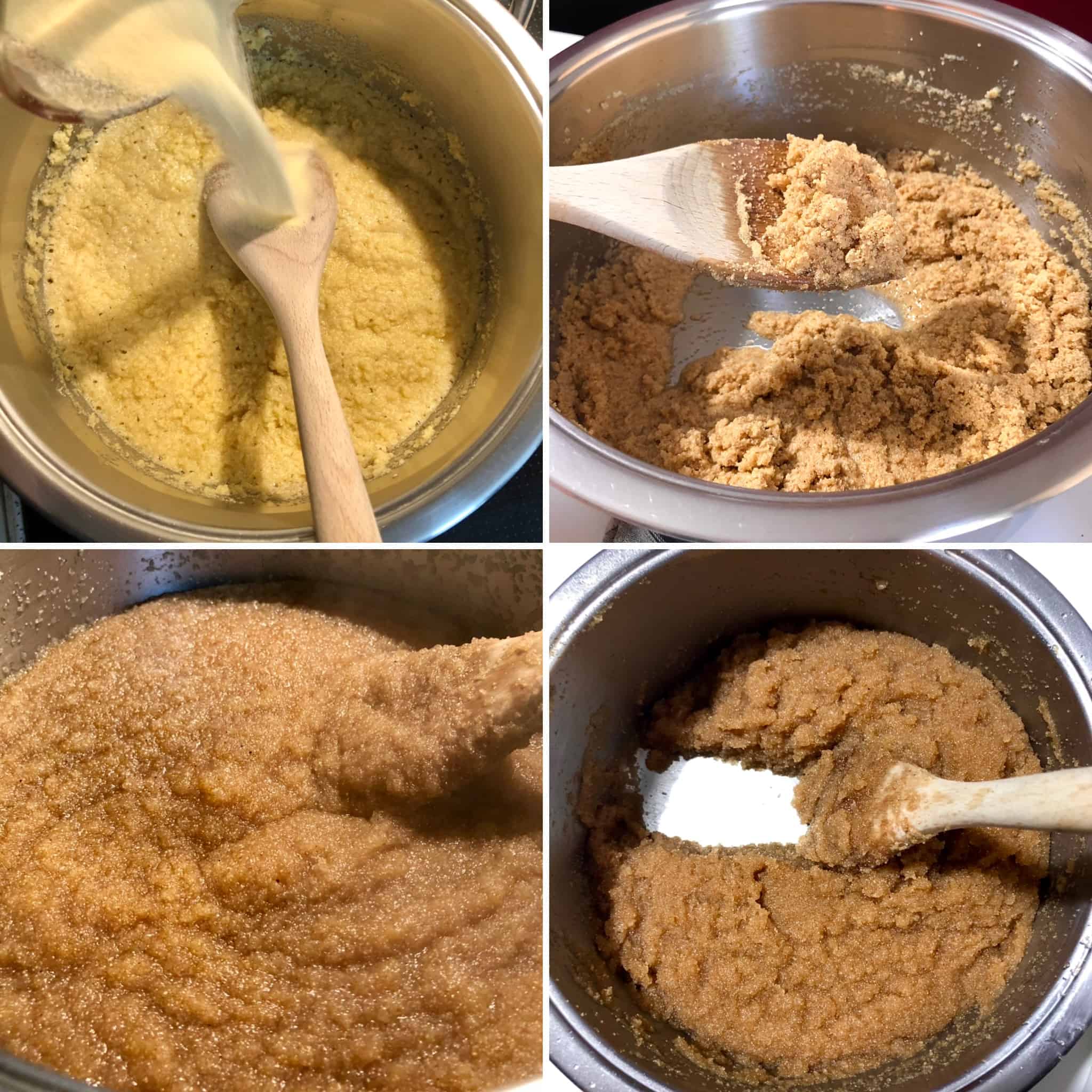
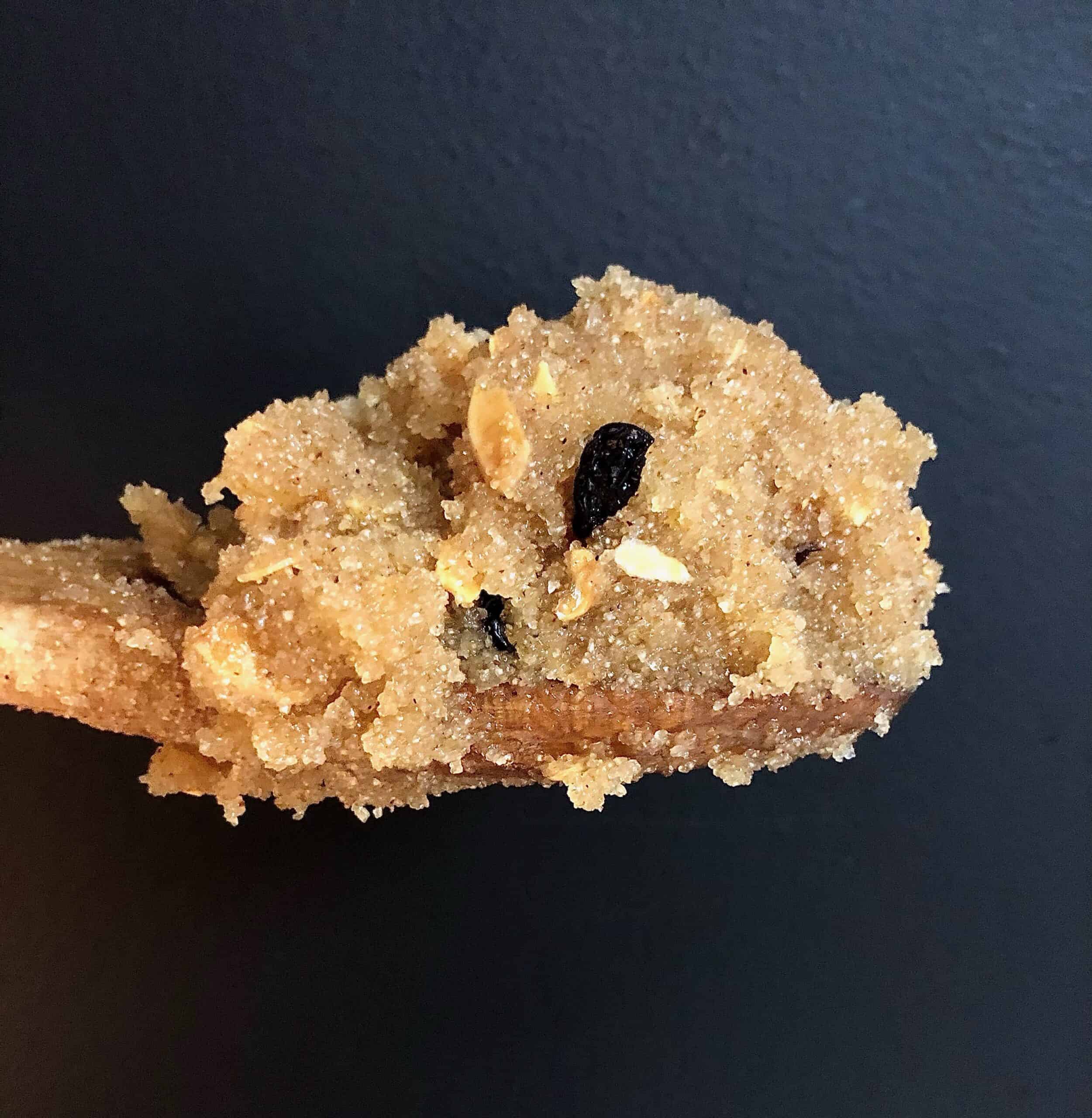
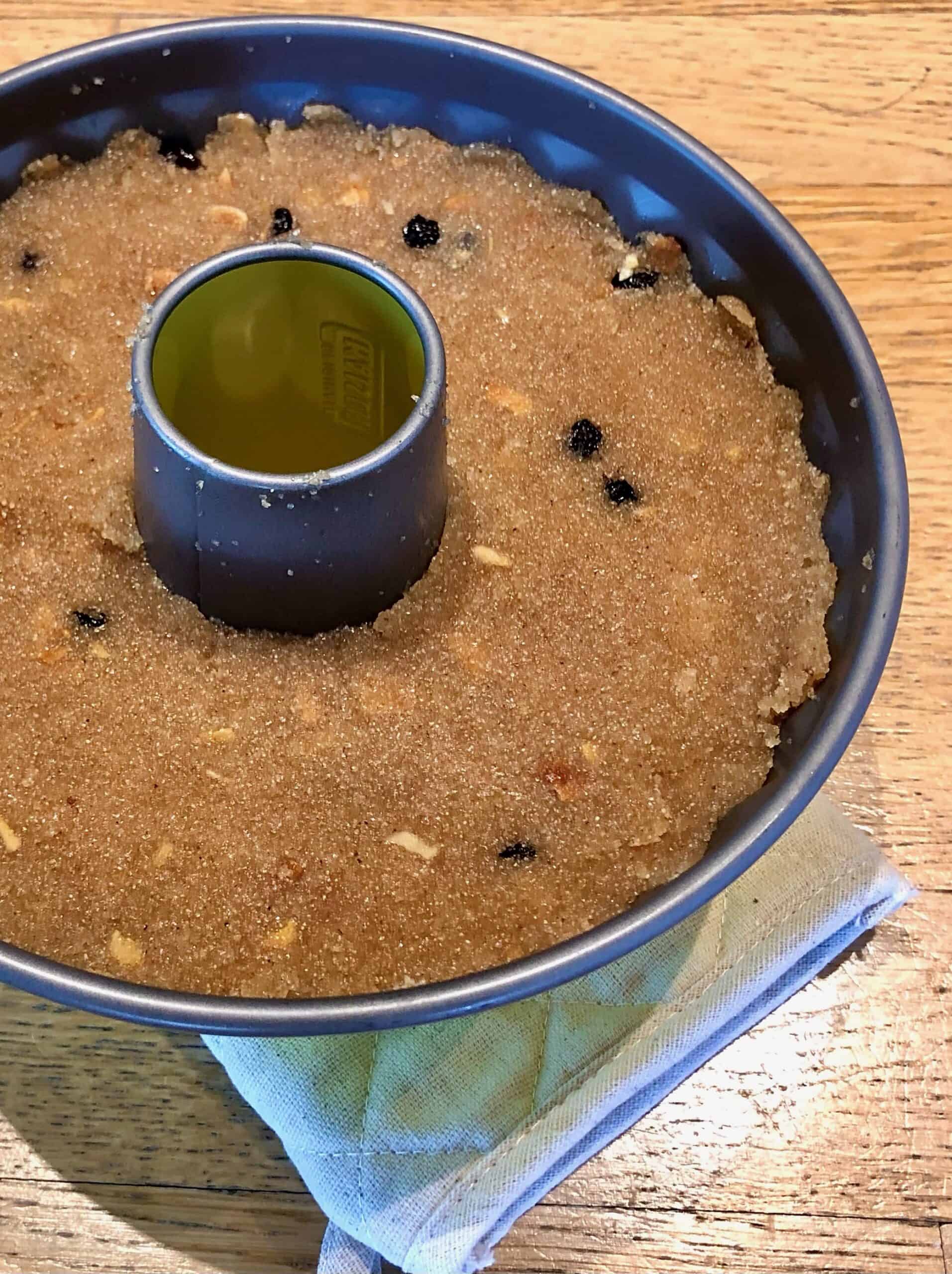
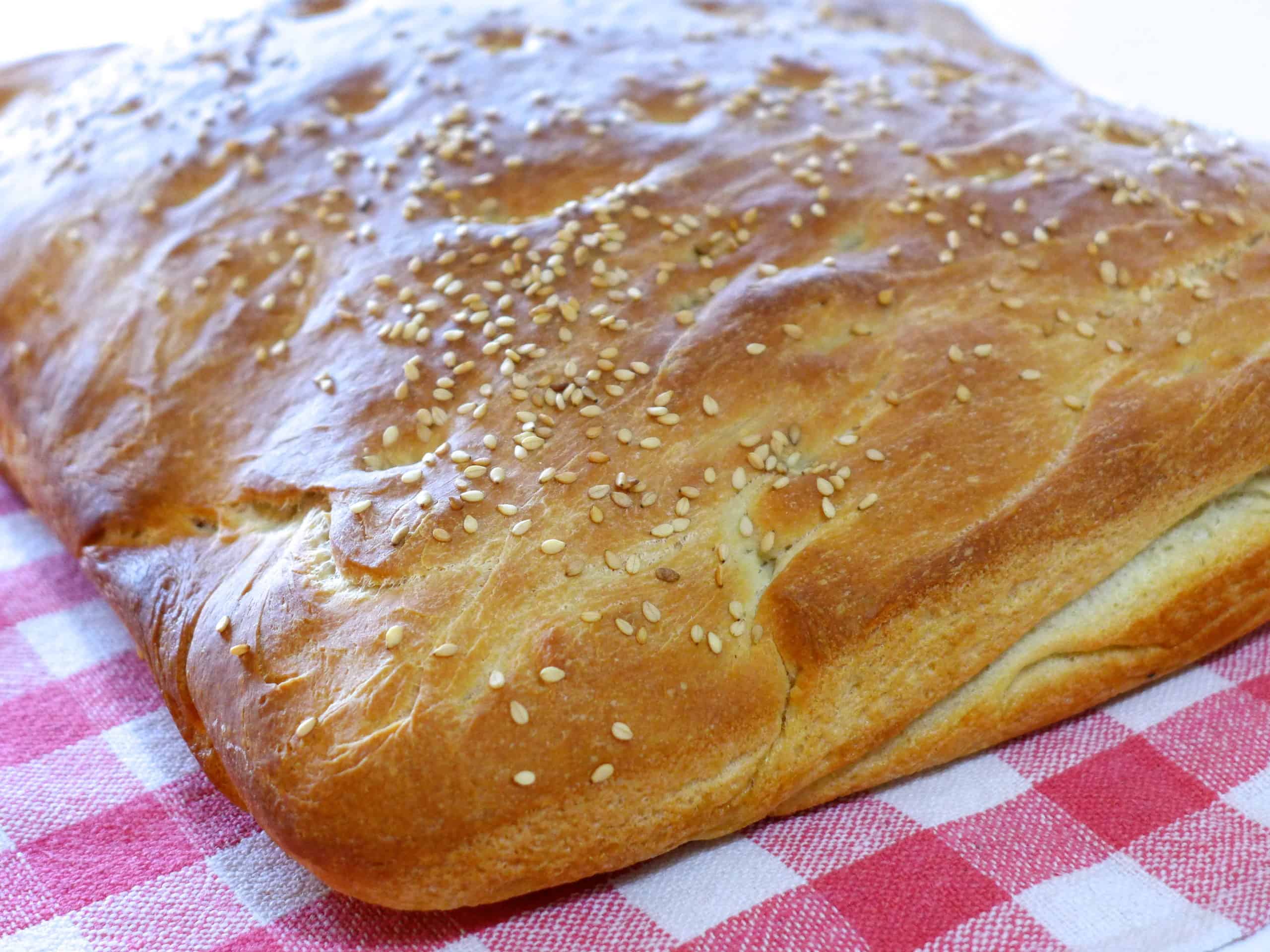
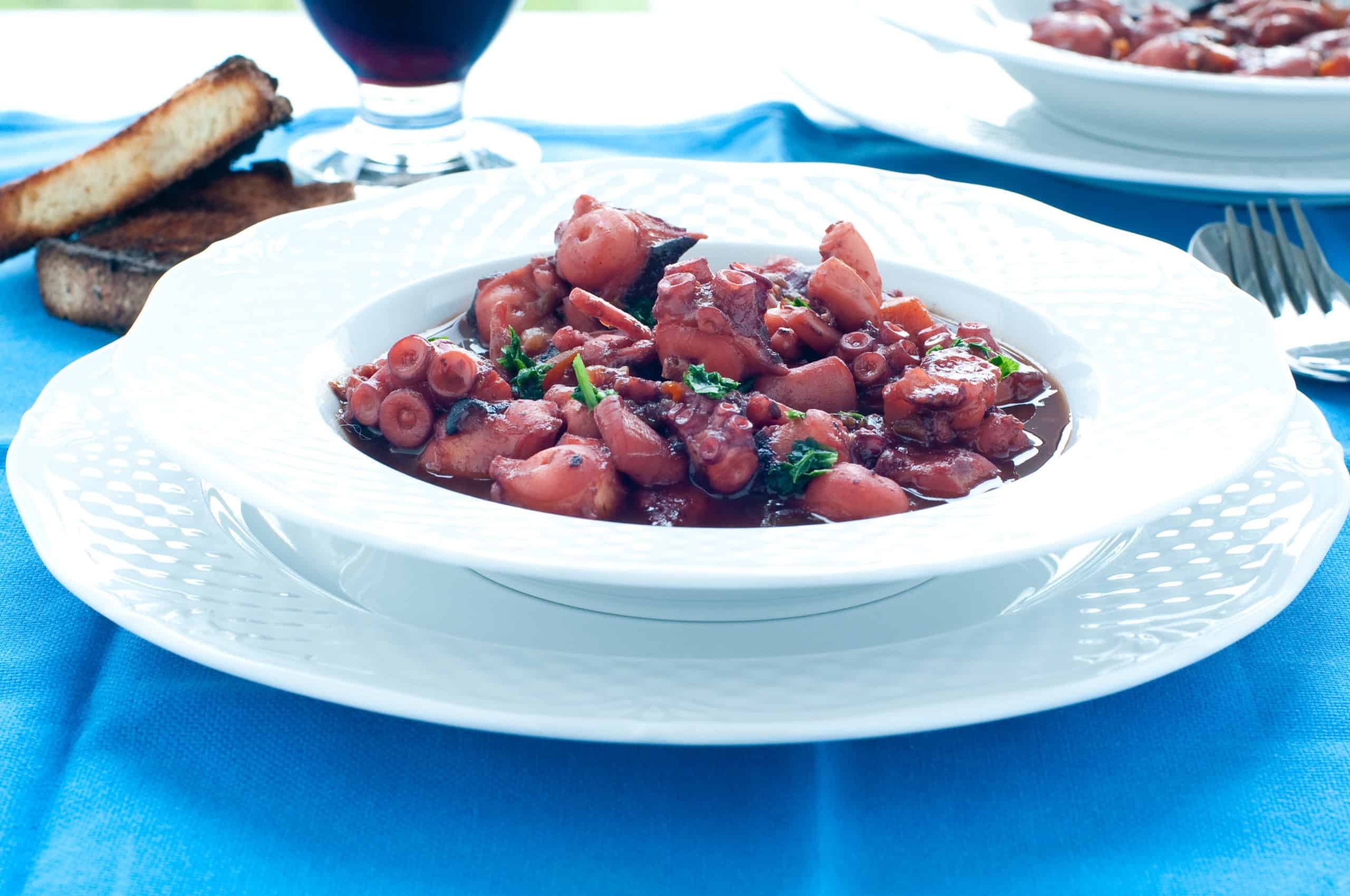
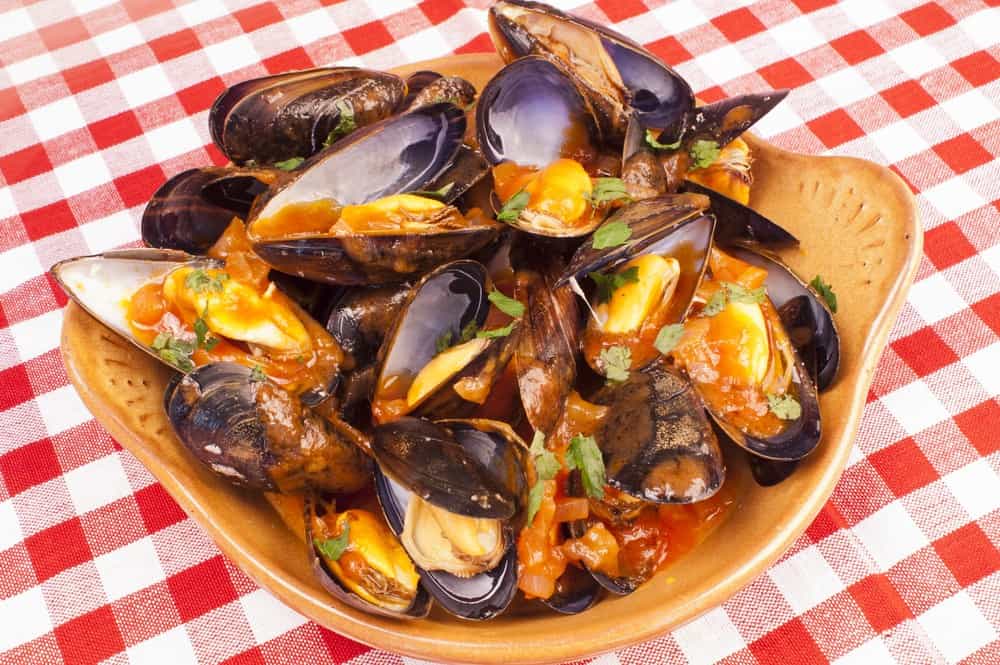
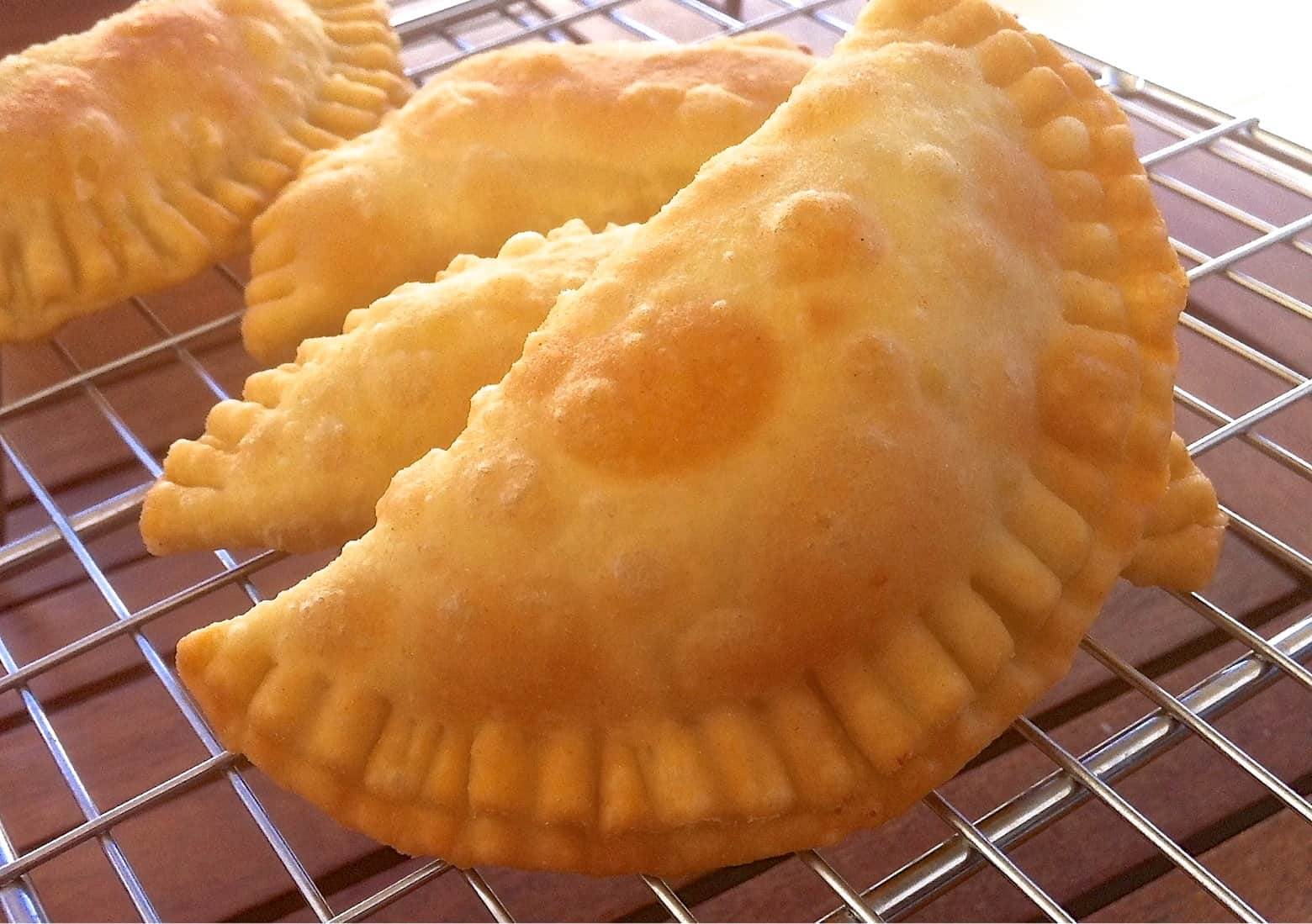
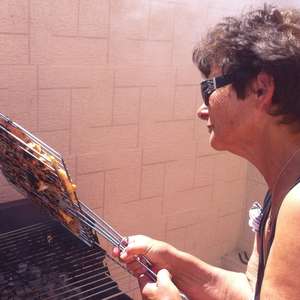
Hi Golan
Oh no… The only thing I can think of was that the temperature of the stove was set too high for too long, causing the oil to overheat and separating from the mixture. Possibly a little more vigorous mixing would have helped as well?
Love
Eli
Hi Eli,
Thanks for the replay
This recepy is on the stove flame only, or I missed something…
I probably stirred it too much and the liquids run out. It became hard as stone after it got cool and impossible to clean the pot. So, I added water and boiled it and after it melted I got a great pudding:-)
Hi Golan
That actually sounds like it worked! Basically when the mix was getting thick you should have stopped, instead of continuing to stir. But I see that you’ve saved it quite nicely there!
Love
Eli
Is there a halva that you bake I seem to remember from my childhood if so can you please share the recipe thank you
Hi Eli,
This recipe looks wonderful and I’d like to make it today. Just a question, could I maybe put some cranberries instead of saltanas? Thank you!
That sounds like a lovely idea! Of course, why not!
I tryed this HalVa I was not happy with the end result the taste was nice but it was dripped in oil I followed the recipe exectley as is said won’t try this anymore two much oil for my liken
Hi Eli hope your doing well? I made this halva last year and it turned out really well. I was wondering could I prepare this dessert a few days in advance or will it ruin it? Xx